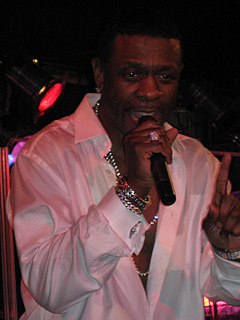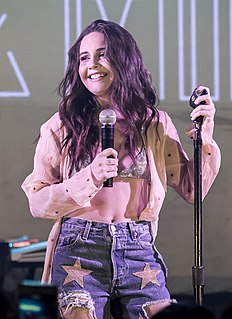A Quote by Moshe Kasher
Oh, my other goal was that I wanted to talk about this area and this time in history. I wanted to talk about growing up in Oakland, a white kid, from this kind of generation of broken homes and listening to hip-hop.
Related Quotes
A lot of the things I do deal with my race, but my race is who I am. I'm an American kid who grew up listening to predominantly hip-hop. I will talk about hip-hop as the music I grew up listening to, and I think sometimes people like to put it as, 'Oh, well, he's talking about black things.' And, yeah, they are, but that's my American identity.
There needs to be structures in place to do something about misrepresentation about hip hop. When awards are given out and the media talk about hip hop, they're confused because they haven't done their homework on it so you have a case where there's an award for the most pop song in the world and it's called 'hip hop'.
Socially, hip-hop has done more for racial camaraderie in this country than any one thing. 'Cause guys like me, my kids - everyone under 45 either grew up loving hip-hop or hating hip-hop, but everyone under 45 grew up very aware of hip-hop. So when you're a white kid and you're listening to this music and you're being exposed to it every day on MTV, black people become less frightening. This is just a reality. What hip-hop has done bringing people together is enormous.
That's why this generation is the least racist generation ever. You see it all the time. Go to any club. People are intermingling, hanging out, having fun, enjoying the same music. Hip-hop is not just in the Bronx anymore. It's worldwide. Everywhere you go, people are listening to hip-hop and partying together. Hip-hop has done that.
I always wanted to have a young female artist that would tell me the truth about life and not only talk about the good things or the things that were exciting or interesting but also talk about the things that people in general are skeptical to talk about- the bad things that do happen. A good 50% of our lives is things that are happening that we're not necessarily super thrilled about and I feel like that's missing from pop music a lot of the time so my main goal is to be truthful about everything and not just specific things.

































